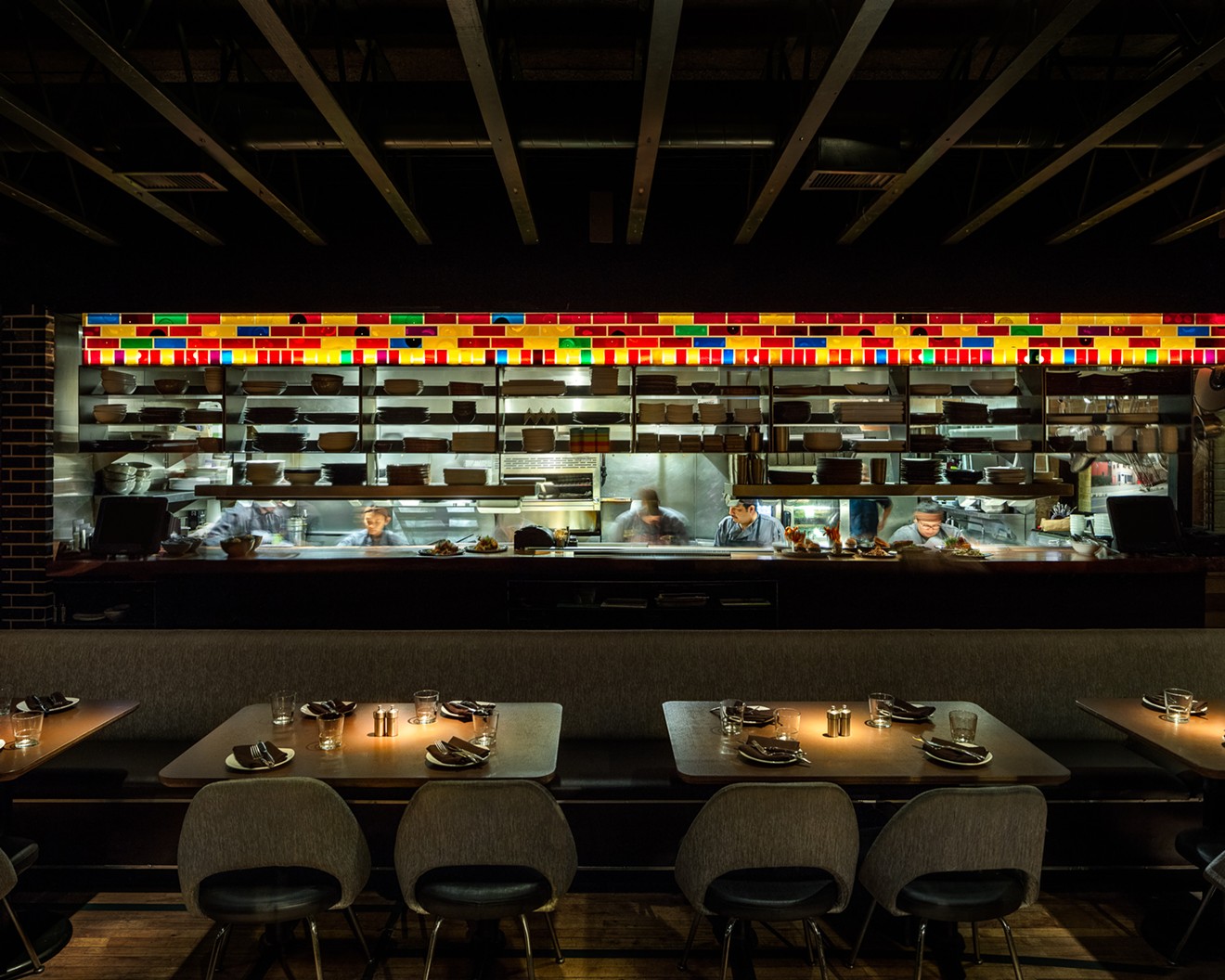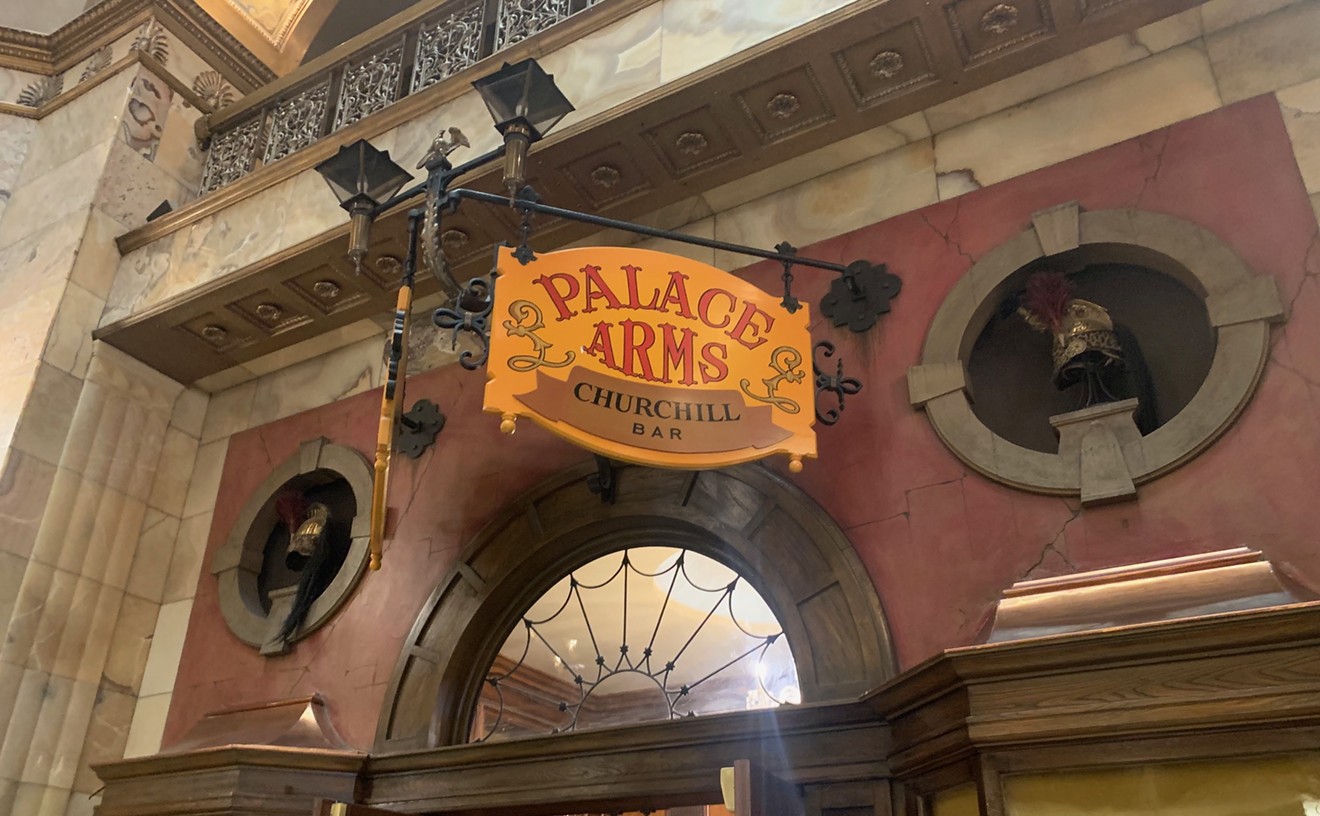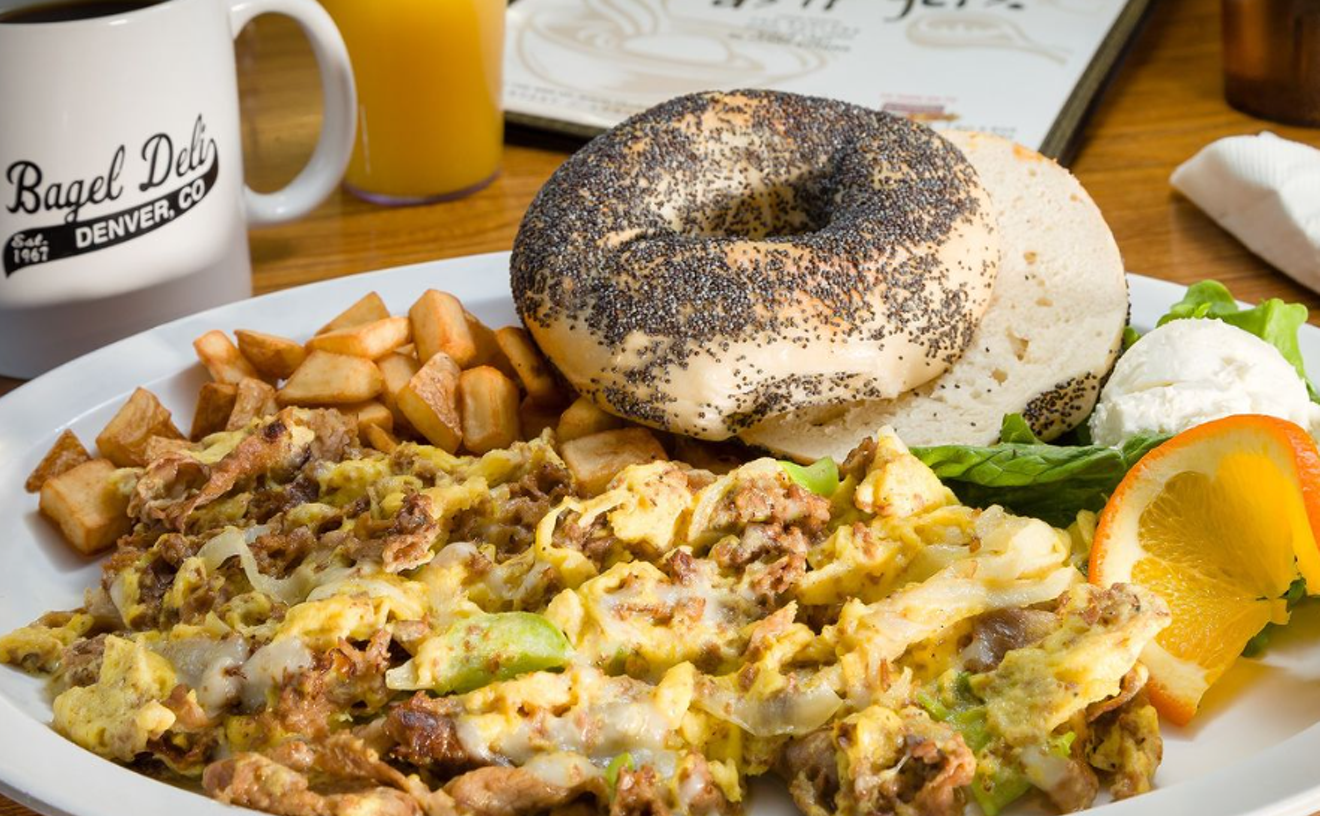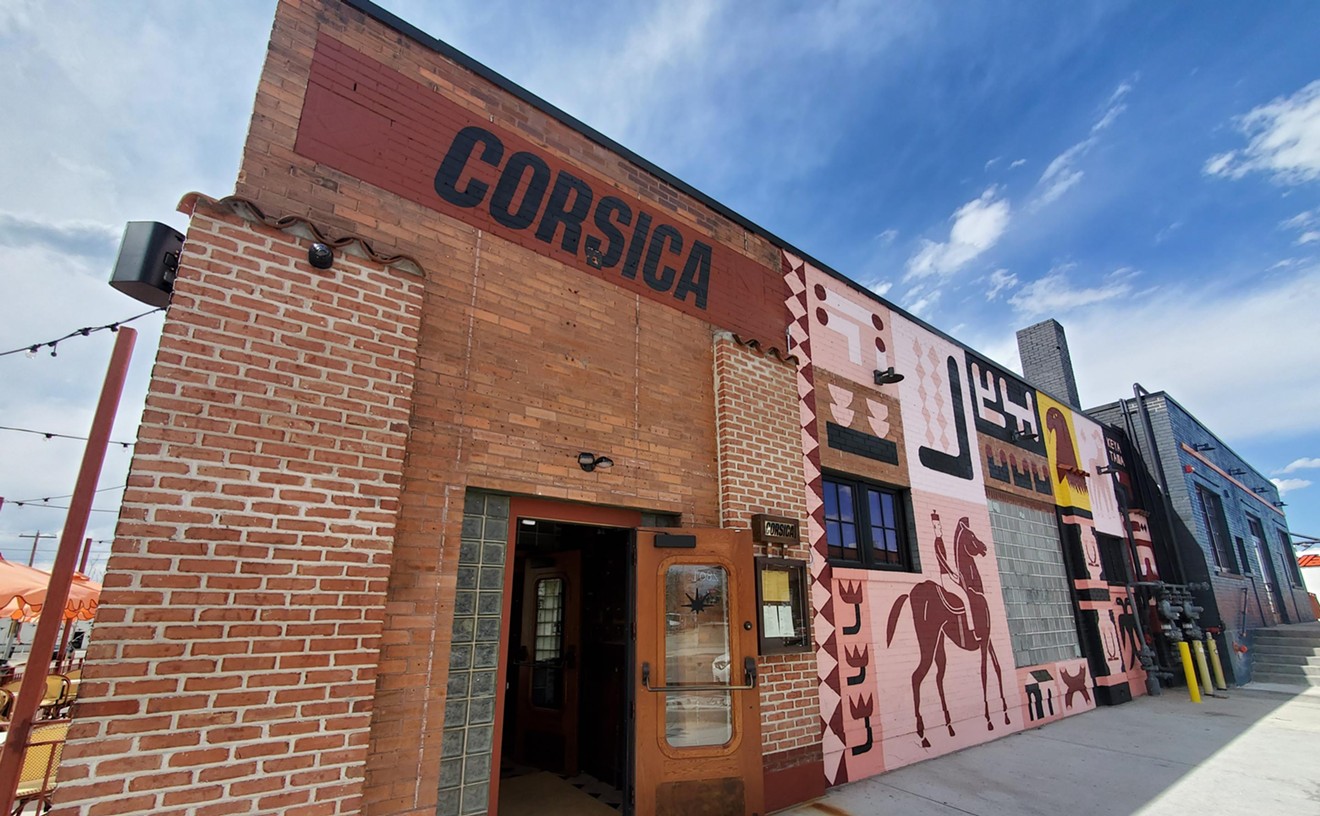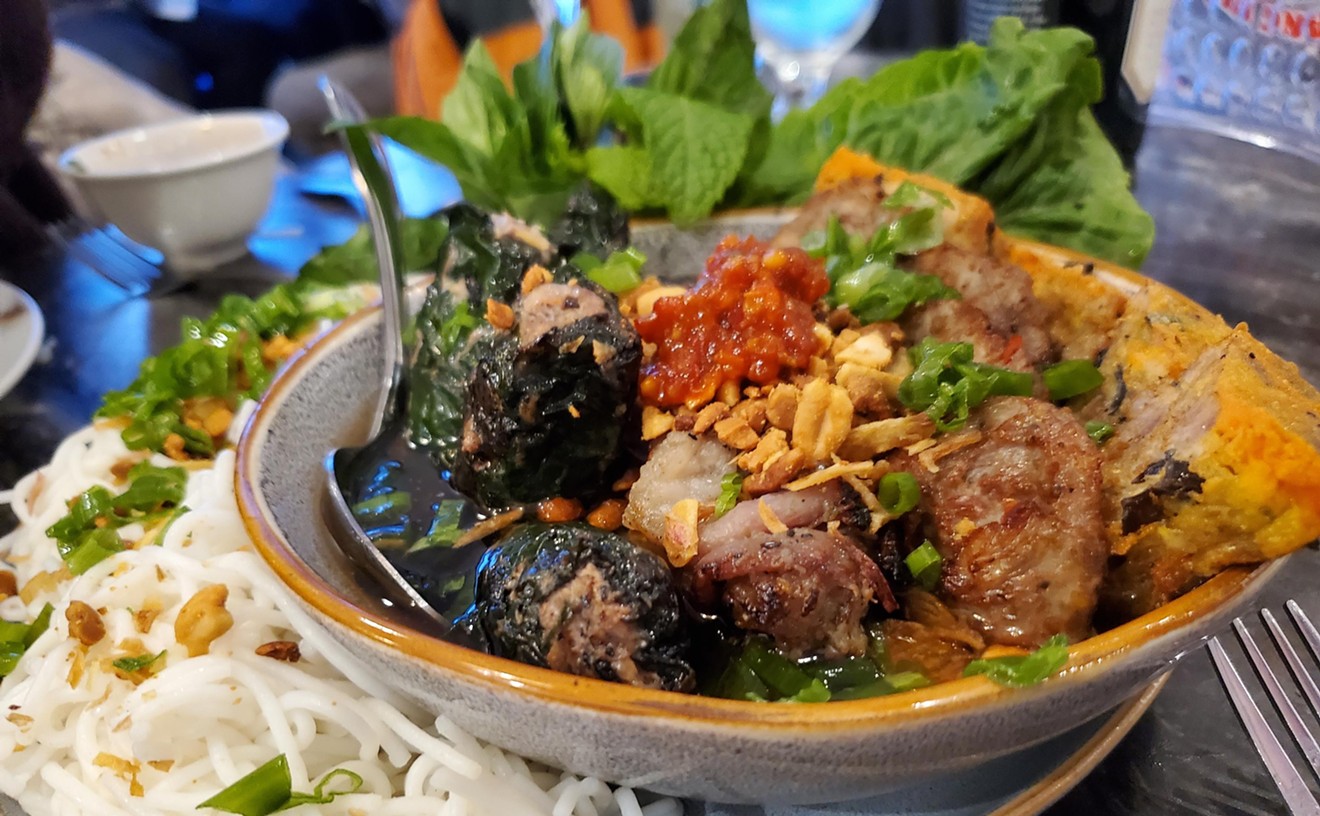“It’s time for [our] whole group of employees to take this restaurant group to its next iteration,” says Justin Cucci, founder and CEO of Edible Beats. Between its five restaurants — Linger, Ophelia's Electric Soapbox, Vital Root, El Five and Root Down — the local company has “around 325” staff members, he notes.
“This industry is sort of known for grinding people out, and I really wanted to have a sustainable culture for the employees,” explains Cucci, who describes the ESOP, or employee stock ownership plan, as “the quintessential win-win.”
“It’s not just one person wins, or a few persons win, but everybody in the company,” says Cucci, who believes that guests, too, will benefit from the new structure. “Part of the ESOP ideal is this one team, one dream — sort of everybody working together."
But initiating the ESOP was no easy task. “This idea started about five years ago, and it took us about three years to get to [a] jumping-off point. That was [in] 2020, and COVID happened maybe a week before we were going to sign all our contracts,” Cucci recalls.
During the pandemic, he faced the real potential of losing his businesses along with longtime employees who had been with the company for a decade-plus. "I felt really shaken up," he says. “We were fortunate in many ways, because we had a tenured brand and name in the city. People came back to us pretty quickly.”
The process of recovery has been mixed for the Edible Beats eateries. “There are some restaurants that could not be more successful considering all factors, and then one or two of our restaurants are slower to recover," he explains. Still, “it looks like we’re going to hit our projections.”
Under this new structure, positive growth will benefit all eligible employees at Edible Beats. Everyone working for the company on the date it became an ESOP was automatically eligible for participation. Going forward, there will be a one-year waiting period for new employees. “Our first valuation will be in September, so we don’t have a share value yet,” Cucci notes, but he's hopeful about this move having a positive impact. “There aren’t many restaurants that can really create wealth, and I hope that the ESOP does," he says.
Locally, there are a few other examples of food-industry businesses, including Left Hand Brewing and Odell Brewing, that have converted to the employee ownership model. But across all industries, ESOPs are rare, and 100 percent employee ownership is even less common. According to the National Center for Employee Ownerships, there are just 6,482 active plans among all United States businesses.
“When we were looking to do this, the first thing I asked my advisors was, ‘Can you tell me any restaurants? I’d love to find out how it works and was it successful,’” remembers Cucci. “There were two restaurants that we found — one before we did the ESOP and one after.”
Though little inspiration could be taken from similar businesses, “The risk appealed to me," Cucci says.
"I wanted to make a statement. A lot of restaurants are looking at how they serve employees and ideas to show that the employees are important.”
In addition to allowing employees to “share in the financial worth of the company,” Cucci explains that the ESOP empowers Edible Beats staff members to “foster the ownership and evolution of [its] future growth.” While Cucci will remain CEO and there is “no change to the leadership structure,” he says that in 2023, Edible Beats will create an ESOP committee. “We want to have three or four employees from each of the restaurants on this committee. We would meet every quarter to talk about the state of things and what needs to change. And what are they seeing that’s positive? What would they like to see for the future?”
Employee empowerment and wealth opportunities aside, Cucci notes that “I always looked at [the ESOP] as a way to create worth — which I love the definition of: ‘Creating something of significant value measured by its qualities or the esteem in which it’s held.’
“At the end of the day, the wealth part comes and goes," he concludes. "Our financial wellness is in worth. We’re trying to grow with integrity.”
“This industry is sort of known for grinding people out, and I really wanted to have a sustainable culture for the employees,” explains Cucci, who describes the ESOP, or employee stock ownership plan, as “the quintessential win-win.”
“It’s not just one person wins, or a few persons win, but everybody in the company,” says Cucci, who believes that guests, too, will benefit from the new structure. “Part of the ESOP ideal is this one team, one dream — sort of everybody working together."
But initiating the ESOP was no easy task. “This idea started about five years ago, and it took us about three years to get to [a] jumping-off point. That was [in] 2020, and COVID happened maybe a week before we were going to sign all our contracts,” Cucci recalls.
During the pandemic, he faced the real potential of losing his businesses along with longtime employees who had been with the company for a decade-plus. "I felt really shaken up," he says. “We were fortunate in many ways, because we had a tenured brand and name in the city. People came back to us pretty quickly.”
The process of recovery has been mixed for the Edible Beats eateries. “There are some restaurants that could not be more successful considering all factors, and then one or two of our restaurants are slower to recover," he explains. Still, “it looks like we’re going to hit our projections.”
Under this new structure, positive growth will benefit all eligible employees at Edible Beats. Everyone working for the company on the date it became an ESOP was automatically eligible for participation. Going forward, there will be a one-year waiting period for new employees. “Our first valuation will be in September, so we don’t have a share value yet,” Cucci notes, but he's hopeful about this move having a positive impact. “There aren’t many restaurants that can really create wealth, and I hope that the ESOP does," he says.
Locally, there are a few other examples of food-industry businesses, including Left Hand Brewing and Odell Brewing, that have converted to the employee ownership model. But across all industries, ESOPs are rare, and 100 percent employee ownership is even less common. According to the National Center for Employee Ownerships, there are just 6,482 active plans among all United States businesses.
“When we were looking to do this, the first thing I asked my advisors was, ‘Can you tell me any restaurants? I’d love to find out how it works and was it successful,’” remembers Cucci. “There were two restaurants that we found — one before we did the ESOP and one after.”
Though little inspiration could be taken from similar businesses, “The risk appealed to me," Cucci says.
"I wanted to make a statement. A lot of restaurants are looking at how they serve employees and ideas to show that the employees are important.”
In addition to allowing employees to “share in the financial worth of the company,” Cucci explains that the ESOP empowers Edible Beats staff members to “foster the ownership and evolution of [its] future growth.” While Cucci will remain CEO and there is “no change to the leadership structure,” he says that in 2023, Edible Beats will create an ESOP committee. “We want to have three or four employees from each of the restaurants on this committee. We would meet every quarter to talk about the state of things and what needs to change. And what are they seeing that’s positive? What would they like to see for the future?”
Employee empowerment and wealth opportunities aside, Cucci notes that “I always looked at [the ESOP] as a way to create worth — which I love the definition of: ‘Creating something of significant value measured by its qualities or the esteem in which it’s held.’
“At the end of the day, the wealth part comes and goes," he concludes. "Our financial wellness is in worth. We’re trying to grow with integrity.”

